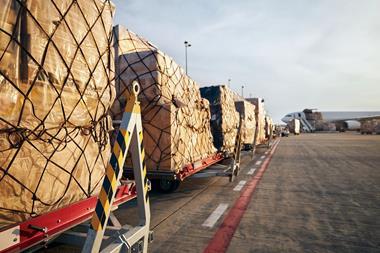The Board of Airline Representatives in Germany (Barig) has called on the country's air cargo sector to invest in technology to help combat the threat of lower cost rivals and bottlenecks.
In a newsletter, Barig secretary general Michael Hoppe said there had been some initial successes in the process of digitising supply chains, such as Frankfurt's FAIR@Link airport apron guidance system and the digital declaration of hazardous goods, but more needed to be done.
"To adequately manage capacity bottlenecks, the lack of qualified personnel and competitive disadvantages due to lower operating costs in other countries, more courage for digitalisation and innovation is still required," he wrote.
"This inevitably includes an increased harmonisation, deregulation and reducing bureaucracy of processes.
"BARIG drives these topics forward in the BARIG Air Cargo & Logistics Committee as well as with the Air Cargo Community Frankfurt and representatives of all areas of the air cargo process chain."
Barig's Air Cargo and Logistics Committee recently met with the Association of Air Cargo Handlers in Germany, the German Association for Freight Forwarding and Logistics and Fraport, amongst others, to discuss the optimisation of logistics and air cargo in the country.
Focal points of discussion were the digitalisation and optimisation of procedures of the handling chain and reducing bureaucracy, meaning reduced paperwork, leaner structures and complete data.
Processes were outlined at the meeting and initial common guidelines are now being prepared.
"The aim is to identify and exploit potentials of increased efficiency, thereby improve the cost base and ultimately accelerate and enhance the efficiency of air cargo handling at the interface road-airport-aircraft," the organisation said.
Read more airfreight digitisation news
Sign up to receive Air Cargo News direct to your inbox for free










